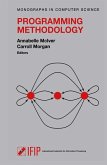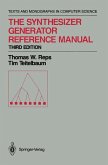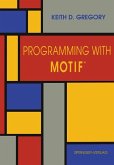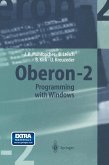The IFIP working group 2.3 (Programming Methodology) is made up of internationally prominent computing academics and industrialists, and broadly its purpose is to invent, discuss and assess new and emerging techniques for improving the quality of software and systems. The group's membership has been influential in topics such as program correctness, object orientation, operating systems and distributed computing; indeed many thriving areas of research nowadays are based on ideas which were once scrutinized by the 2.3 working committee. This is a volume of chapters written by the membership which will form a reference and guide to the front line of research activity in programming methodology. The range of subjects reflects the current interests of the members, and will offer insightful and controversial opinions on modern programming methods and practice. The material is arranged in thematic sections, each one introduced by a problem which epitomizes the spirit of that topic. The exemplary problem will encourage vigorous discussion and will form the basis for an introduction/tutorial for its section.
The second half of the twentieth century saw an astonishing increase in computing power; today computers are unbelievably faster than they used to be, they have more memory, they can communicate routinely with remote machines all over the world - and they can fit on a desktop. But, despite this remarkable progress, the voracity of modem applications and user expectations still pushes technology right to the limit. As hardware engineers build ever-more-powerful machines, so too must software become more sophisticated to keep up. Medium- to large-scale programming projects need teams of people to pull everything together in an acceptable timescale. The question of how pro gram mers understand their own tasks, and how they fit together with those of their colleagues to achieve the overall goal, is a major concern. Without that under standing it would be practically impossible to realise the commercial potential of our present-day computing hardware. That programming has been able tokeep pace with the formidable advances in hardware is due to the similarly formidable advances in the principles for design, construction and organisation of programs. The efficacy of these methods and principles speaks for itself - computer technology is all-pervasive - but even more telling is that they are beginning to feed back and inftuence hardware design as weIl. The study of such methods is called programming methodology, whose topics range over system-and domain-modelling, concurrency, object orientation, program specification and validation. That is the theme of this collection.
The second half of the twentieth century saw an astonishing increase in computing power; today computers are unbelievably faster than they used to be, they have more memory, they can communicate routinely with remote machines all over the world - and they can fit on a desktop. But, despite this remarkable progress, the voracity of modem applications and user expectations still pushes technology right to the limit. As hardware engineers build ever-more-powerful machines, so too must software become more sophisticated to keep up. Medium- to large-scale programming projects need teams of people to pull everything together in an acceptable timescale. The question of how pro gram mers understand their own tasks, and how they fit together with those of their colleagues to achieve the overall goal, is a major concern. Without that under standing it would be practically impossible to realise the commercial potential of our present-day computing hardware. That programming has been able tokeep pace with the formidable advances in hardware is due to the similarly formidable advances in the principles for design, construction and organisation of programs. The efficacy of these methods and principles speaks for itself - computer technology is all-pervasive - but even more telling is that they are beginning to feed back and inftuence hardware design as weIl. The study of such methods is called programming methodology, whose topics range over system-and domain-modelling, concurrency, object orientation, program specification and validation. That is the theme of this collection.
From the reviews:
"The book represents a collection of essays concerning the various topics of programming methodology. ... A sample selected above from twenty essays of the book shows the topics cover relatively broad spectrum of programming methodology. ... Each essay concludes with a good set of references. This interesting book may be recommended namely to readers actively working in the field." (Ivan Martinec, Zentralblatt MATH, Vol. 1030, 2004)
"The book represents a collection of essays concerning the various topics of programming methodology. ... A sample selected above from twenty essays of the book shows the topics cover relatively broad spectrum of programming methodology. ... Each essay concludes with a good set of references. This interesting book may be recommended namely to readers actively working in the field." (Ivan Martinec, Zentralblatt MATH, Vol. 1030, 2004)









